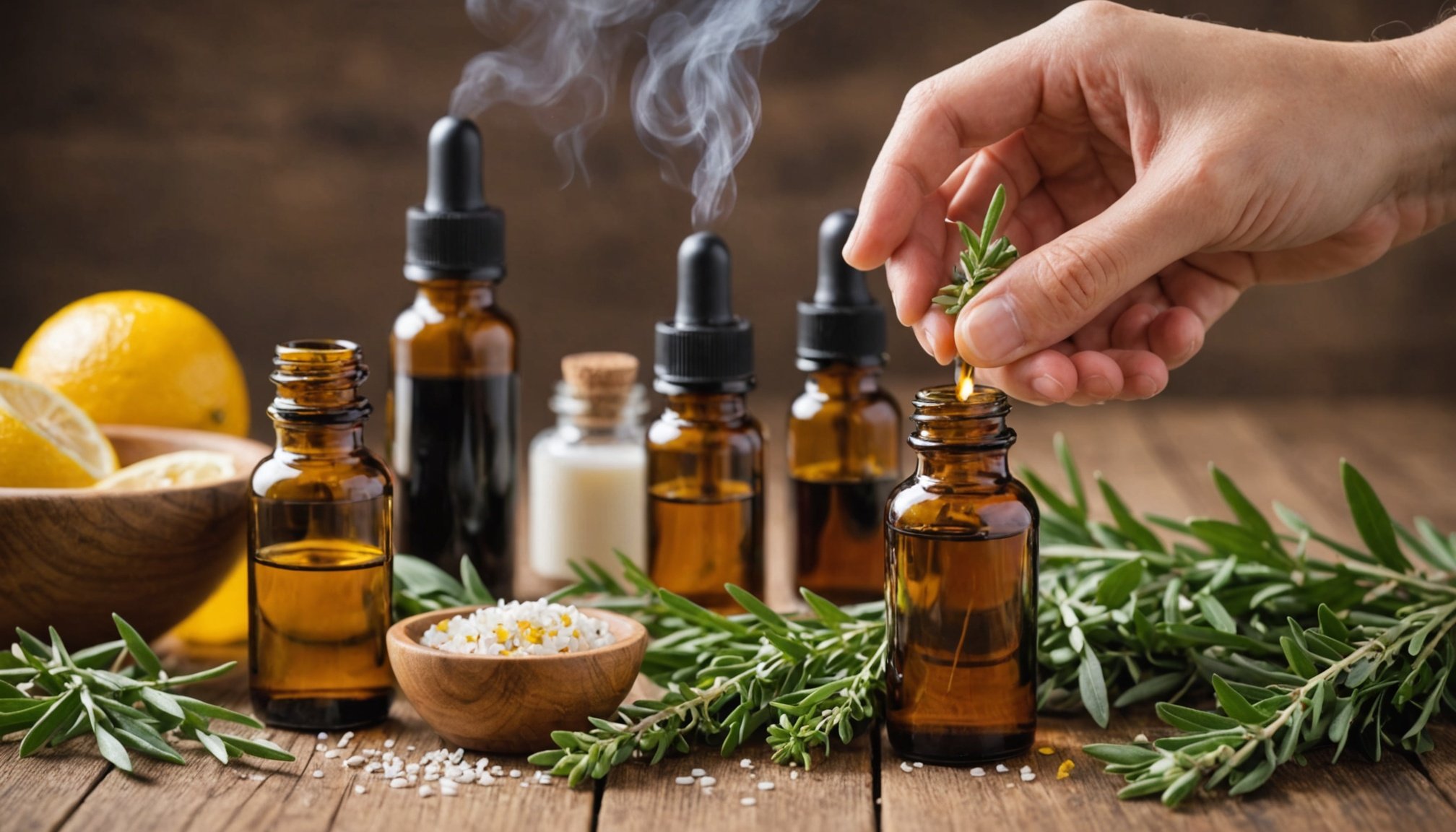Pregnancy is a transformative journey filled with anticipation and joy, but it often comes with its share of discomforts. From morning sickness to anxiety during labor, many women experience physical and emotional challenges that can be overwhelming. As a natural and holistic approach, aromatherapy has emerged as a popular method for alleviating these pregnancy-related discomforts. Utilizing essential oils, this practice not only promotes relaxation but also supports overall health during this critical stage. In this article, we will explore the various roles that aromatherapy plays in easing pain and anxiety for pregnant women, backed by recent studies and insights.
Understanding Aromatherapy and Essential Oils
Aromatherapy is a therapeutic practice that involves the use of essential oils extracted from plants to enhance physical and emotional well-being. These oils can be inhaled, applied topically, or used in massages. Each oil possesses unique properties that can target specific ailments, making aromatherapy a versatile tool for pregnant women.
In the same genre : What are the potential long-term benefits of breastfeeding for both mother and child?
Throughout pregnancy, women’s bodies undergo significant changes, which can lead to new discomforts and challenges. Aromatherapy provides a natural alternative to pharmaceuticals, supporting women in managing discomfort without the risk of harmful side effects.
One of the most well-researched oils is lavender, known for its calming effects. Studies indicate that inhaling lavender oil can reduce anxiety and promote better sleep, which is invaluable during pregnancy when sleep disturbances are common. A study conducted by the International Journal of Nursing Studies found that lavender oil significantly reduced anxiety in pregnant women, demonstrating its effectiveness as a natural remedy.
Also read : What are some effective coping mechanisms for dealing with pregnancy-related insomnia?
Other essential oils, such as peppermint and ginger, have been linked to reducing nausea and digestive discomfort, which are frequent issues during the first trimester. Incorporating these oils into your daily routine can be straightforward, whether through diffusing them in your home or adding a few drops to your bath.
As aromatherapy gains popularity, it is crucial for pregnant women to understand the safe usage of oils. Not all essential oils are suitable for pregnancy; some can induce contractions or pose risks to fetal development. Always consult with a healthcare provider before starting any new wellness regimen involving essential oils, ensuring that your choices align with your health and safety.
Aromatherapy for Labor Pain Relief
Labor can be an intense experience filled with varying degrees of pain and discomfort. Many women seek natural ways to ease the pain and anxiety associated with labor, and aromatherapy can play a significant role in this process. A growing body of studies suggests that certain essential oils can provide relief during labor.
During labor, the use of essential oils such as lavender, ylang-ylang, and clary sage can help create a calming environment. These oils have analgesic and antispasmodic properties that may assist in managing pain and reducing stress levels. For instance, a group study published in the Journal of Obstetric, Gynecologic & Neonatal Nursing highlighted how inhaling clary sage oil significantly reduced labor pain when applied in a controlled setting.
Moreover, massage with essential oils during labor has shown promising results in studies. A gentle massage with a diluted blend of essential oils can enhance relaxation and comfort, allowing women to cope better with contractions. A study from the Journal of Alternative and Complementary Medicine indicated that women who received aromatherapy massage experienced less pain and anxiety during labor compared to those who did not.
To incorporate aromatherapy into labor, consider preparing a small kit with your chosen oils. You can use an oil diffuser, apply them to your pulse points, or have a partner perform a soothing massage. The important part is to create an environment where you feel safe and relaxed, allowing the properties of the oils to work effectively.
Managing Anxiety and Stress During Pregnancy
Pregnancy can be a time filled with anxiety and uncertainty as women prepare for the arrival of a new life. This emotional turmoil can negatively impact both mental and physical health, making it essential to find effective coping strategies. Aromatherapy can be an excellent tool for managing stress and anxiety during this transformative time.
As previously mentioned, lavender is not just beneficial for physical discomfort but is also renowned for its calming effects on the mind. Research has shown that inhaling lavender essential oil can significantly reduce anxiety levels in pregnant women. In a study conducted by the Journal of Clinical Psychology, participants who used lavender reported lower anxiety levels compared to those who did not.
In addition to lavender, oils such as bergamot, chamomile, and frankincense are also effective in reducing anxiety. These oils can be used in a variety of ways, from diffusing them in your living space to adding them to your bath or using them in a calming massage. Creating a soothing ritual that incorporates these oils can help ground you during moments of stress.
Mindfulness practices combined with aromatherapy can also enhance the benefits. Consider integrating essential oils into your meditation or yoga practice to foster a sense of peace and relaxation. As you inhale these calming scents, focus on your breathing and allow the aromas to wash over you, melting away the anxiety that often accompanies pregnancy.
Essential Oils to Avoid During Pregnancy
While many essential oils offer therapeutic benefits, it is crucial to recognize that not all oils are safe for use during pregnancy. Some oils can stimulate contractions or adversely affect fetal development, making it vital to educate yourself on which oils to avoid.
For instance, essential oils like sage, rosemary, and jasmine are known for their stimulating properties and should be avoided during pregnancy. Research indicates that certain oils can cross the placental barrier, potentially affecting fetal health. A study published in the Journal of Perinatal Education cautioned against the use of oils that have not been proven safe for pregnant women, urging caution and proper research.
It is also essential to consider the method of application. While inhalation may be generally safe, topical application of concentrated oils can pose more significant risks. Always dilute essential oils in a carrier oil before applying them to the skin, and perform a patch test to check for any allergic reactions.
As you explore the world of aromatherapy, make sure to consult with a healthcare provider knowledgeable about essential oils, especially concerning pregnancy. This way, you can safely enjoy the benefits of aromatherapy while avoiding any potential risks.
In conclusion, aromatherapy offers a holistic approach to managing the discomforts associated with pregnancy. From alleviating pain during labor to reducing anxiety and stress, the right essential oils can enhance the overall experience of this beautiful yet challenging journey. However, it is essential to conduct thorough research and consult with healthcare professionals before incorporating aromatherapy into your routine. By doing so, you can confidently navigate your pregnancy while enjoying the calming and therapeutic benefits that essential oils have to offer.











